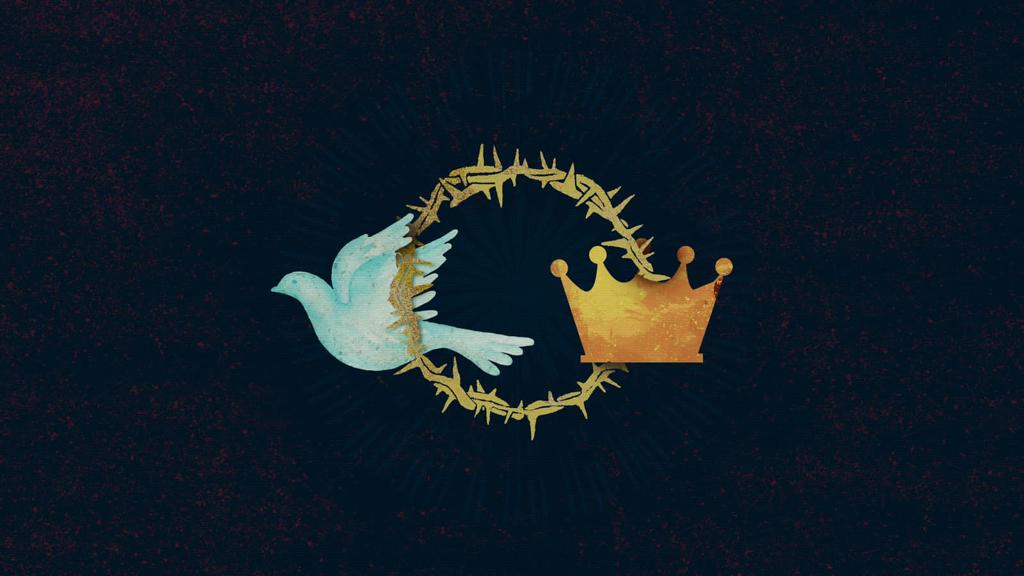Give thought to the words of our Lord in Matthew 28:19-20,
“Go therefore and make disciples of all nations, baptizing them in the name of the Father and of the Son and of the Holy Spirit, teaching them to observe all that I have commanded you.”
Given the opportunity, where would you begin bolstering the faith of a recent convert to Christ? I hope you have given this some thought. Within the context of disciple-making, Jesus inserts the Doctrine of the Trinity. Evidently, the entire Christian walk is rooted in the ‘one God in Trinity, and Trinity in Unity.’
As disciple-makers, we are to i) teach in order to construct (Ephesians 4:12); and, ii) equip in order to dismantle. (2 Corinthians 10:5) In this article, we will focus on the latter, i.e., equipping the saints in defence of the Trinity.
The Demonstration of the Apostolic Preaching
Desiring to fortify his young friend, Marcianus, in his new life in Christ, Irenaeus, Bishop of Lyon (130-202) an early Church Father, wrote a summary of the Christian Faith, titled, The Demonstration of the Apostolic Preaching.
As a boy, Irenaeus listened to the great Polycarp; Justin Martyr deeply influenced him; and he spent most of his fruitful years refuting various forms of Gnosticism. This elevated vantage point prepared him to set forth, what he referred to as, ‘a manual of essentials’ on the Christian Faith.
So, where does the veteran disciple-maker begin his instruction? Naturally with God. And, not just some abstract idea of God, but the Triune God. He starts with the “One God, …[Who] over all is the Father; and through all is the Son, for through Him all things were made by the Father; and in us all is the Spirit, who cries Abba Father, and fashions man into the likeness of God.”
Note, for Irenaeus, God is not like some divine exterior-, upon looking inside of which you discover the three Persons. No, there is no god apart from the Father, Son and Holy Spirit all the way through. Irenaeus then summarises, “God the Father bestowing on us regeneration through His Son by the Holy Spirit.”
This magisterial work is punctuated with a truly profound observation. He urges his protégé to avoid all types of heresy. He says that there are only three basic types of heresies: One that despises the Father and imagines another which does not exist; the other rejects the Son and His incarnation in any way; and finally, those who receive not the Holy Spirit and His prophetic Word.
Damnable Error
How do we define ‘heresy’? Here is a word that is both overused and underused at the same time. David Kaywood defines heresy as “Damnable Error.” Damnable: A teaching so erroneous that it could send you to hell upon death. Error: It is not just a disagreement or something that is off-putting to you. But a biblical or theological error that is so serious it affects where you go after you die. One who unrepentantly holds to these errors, Paul says, “have nothing more to do with him.” (Titus 3:10)
The Lord Jesus reveals to us that eternal life is this, to know the Father, the only true God, and the Son whom He has sent. (John 17:3) ‘The God who is There’ is Triune, and every error can only be defined based on this objective truth.
Let us explore Irenaeus’ three types of heresies briefly.
“Despises the Father”
The rejection of the Father is displayed in multiple ways and ultimately espouses a god or gods that do not exist. The Mormons, for instance, are guilty of teaching ‘a plurality of gods’, with Brigham Young concluding, “How many Gods there are, I do not know. But there never was a time when there were no Gods and worlds.” L. Ron Hubbard, the founder of Scientology, recognised the existence of a Supreme Being, but each member is left to “work out His own idea.” Zen Buddhists do not believe in the existence of a personal God. Their God is impersonal – the “ultimate reality.” Like other Eastern religions, Zen Buddhism is pantheistic. According to Islam, God cannot be considered a “father”, and He has no son: “do not say, “Trinity.” Stop!—for your own good. Allah is only One God. Glory be to Him! He is far above having a son!” Open Theism affirms that since man has a libertarian free will, God cannot know the future. Therefore, God makes highly educated guesses as events transpire. In the end, God is controlled by His creation, i.e., time.
“Rejects the Son”
The Doctrine of the Son is the most contested by far. This should come as no surprise, as Jesus told us this would happen, in John 15:18-16:4. He is the living stone rejected by men. (1 Peter 2:4) From denying His deity (as did the Arians) to denying his humanity (as the Gnostics do), a defective view of Christ always has and will always lead to apostasy and heresy. The Jehovah’s Witnesses are simply a modern iteration of the Arian cult in denying the deity of Jesus. Baha’ism teaches that Jesus was a messenger of God along with others, stating, “He [the worshipper] reverences Christ and Mohammed and all of God’s former Messengers to mankind, but he recognises Baha’u’llah as the bearer of God’s message for the new age…” Christian Science makes a distinction between Jesus and Christ. Mary Baker Eddy, the acclaimed founder of Christian Science, said, “Jesus is the name of the man who, more than all other men, has presented Christ, the true idea of God, healing the sick and the sinning and destroying the power of death. Jesus is the human man, and Christ is the divine idea; hence the duality of Jesus the Christ.” Oneness Pentecostalism does not recognize the distinct persons of the Godhead. It has various forms / modes / manifestations—some see Jesus Christ as the one God, who sometimes manifests Himself as the Father and at other times as the Holy Spirit. This is the ancient heresy called Modalism.
“Receive not the Holy Spirit”
The Person of the Holy Spirit is relentlessly blasphemed. The Lord Jesus said, “whoever blasphemes against the Holy Spirit never has forgiveness, but is guilty of an eternal sin.” (Mark 3:29). The Apostle Peter, referring to Scripture, writes, “men spoke from God as they were carried along by the Holy Spirit.” (2 Peter 1:21) Macedonianism was a fourth-century heresy that denied the full divinity or personality of the Holy Spirit. The Montanists added new prophetic revelation. Of their leader Eusebius, the early church historian, said, “he [Montanus] became beside himself, and being suddenly in a sort of frenzy and ecstasy, he raved, and began to babble and utter strange things, prophesying in a manner contrary to the constant custom of the Church handed down by tradition from the beginning.” Progressive Christianity denies the inerrancy and sufficiency of Scripture and adopts a revisionist view, with a strong focus on Critical theory. Rooted in Marxism, critical theory functions as a worldview, dividing society into oppressor and oppressed categories. Consequently, the oppressed group procure access to ‘special’ or ‘hidden’ knowledge through their ‘lived experience.’ This is simply repackaged Gnosticism. Gay Theology, denies the sufficiency of Scripture and redefines sin to exclude homosexuality. The Prosperity Gospel twists Scripture, promising “Your Best Life Now,” in terms of earthly health and wealth. The ‘Iglesia Ni Cristo’ movement, denies the deity of the Holy Spirit, describing Him as, “the power … not God but one of the spirits being sent by God.”
By contrast, the Apostle Paul writes to the Thessalonians to stand firm and to hold to the apostolic teaching as this will produce sanctification by the Spirit and belief in the truth. (2 Thessalonians 2:13-15)
Closing Thoughts
None of these damnable errors should catch us off-guard, beloved. The devil has been a murderer from the beginning. (John 8:44) Just as we see these movements deceive innumerable souls, the Scripture told us there would be counterfeits:
“And I saw, coming out of the mouth of the dragon and out of the mouth of the beast and out of the mouth of the false prophet, three unclean spirits like frogs. For they are demonic spirits, performing signs, who go abroad to the kings of the whole world, to assemble them for battle on the great day of God the Almighty.” – Revelation 16:13-14
May we learn from Irenaeus what it looks like to put our arms around a young disciple and ground their faith in this glorious Triune God, expounding upon the excellencies and warning about the fallacies. “While evil people and impostors will go on from bad to worse, deceiving and being deceived.” (2 Timothy 3:13). 2
3. Francis A. Schaeffer, The God Who Is There, 1998
4. Joseph Smith preached on June 16th, 1844, and quoted in the Mormon publication, Teachings of the Prophet Joseph Smith
5. BrighamYoung,PublishedbyDeseretBookCo,SaltLakeCity,1954
6. William Petersen Those Curious New Cults Keats Publishing Co’, New Canaan, Connecticut, 1973, p.95
7. https://www.patheos.com/library/zen/beliefs/ultimate-reality-and-divine-beings
8. Qu ‘ran, excerpt from translation of An-Nisa 171 (Translation by Dr. Mustafa Khattab)
9. https://www.jw.org/en/bible-teachings/questions/is-jesus-almighty/
10. Edmund Gruss Cults and The Occult in the Age of Aquarius,pg.87
11. Mary Baker Eddy Science and Health, pg.473


